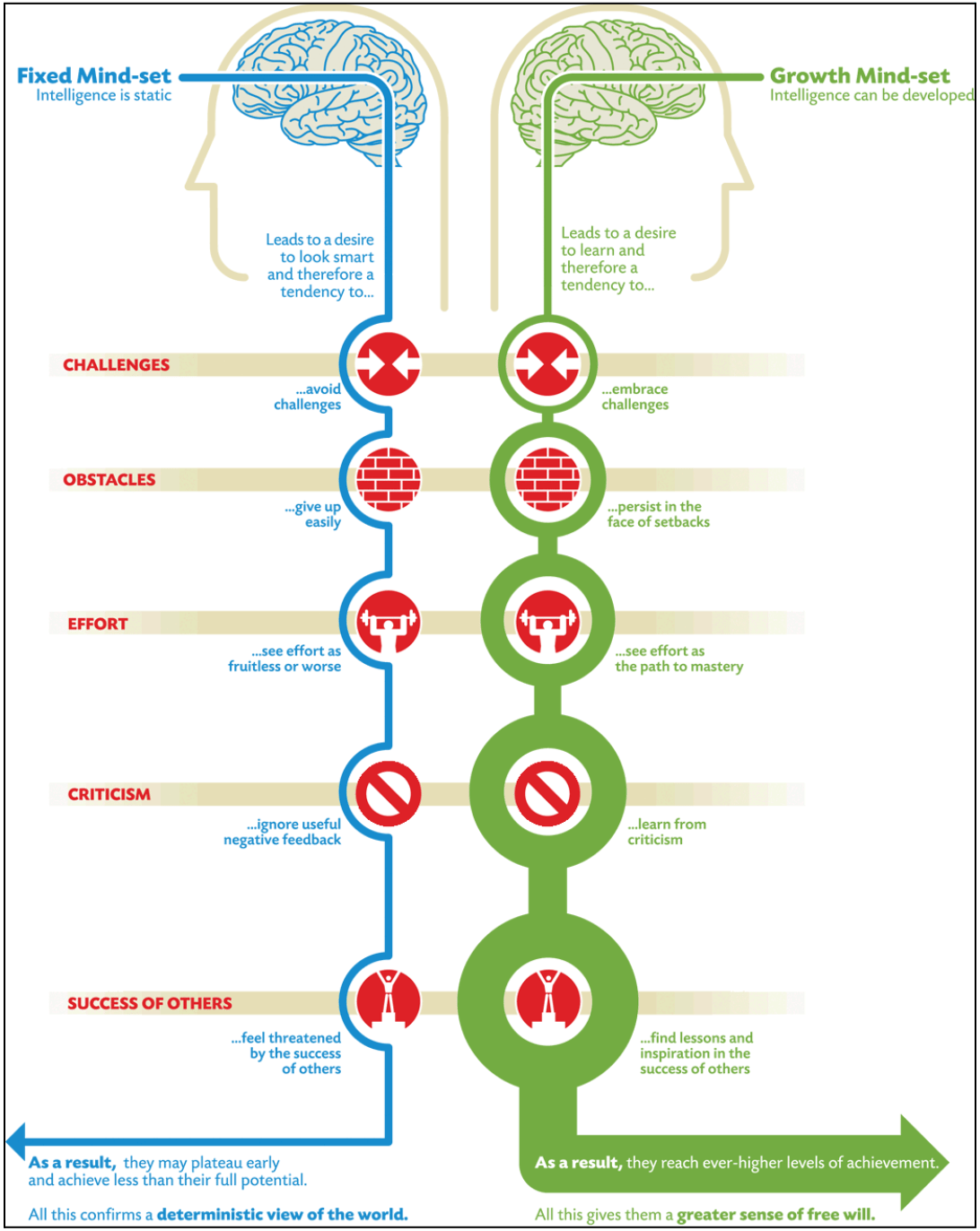Most people suck at receiving feedback.
We get defensive when we receive negative feedback, and fail to apply the learnings from positive feedback.
Kids are no different.
From teachers, coaches, or even peers, feedback's value is undeniable, yet its reception is often met with resistance (especially when a parent is involved 🙄).
To amplify the situation, kids face a critical juncture in developing resilience, which is a time when learning to take feedback is paramount.
Here are two science-backed strategies for teaching your kid to take feedback like a champ. 👇
Give ‘em a growth mindset
🔬 The Science
Dr. Carol Dweck is a renowned psychologist having held positions at Columbia, Harvard, and now Stanford.
So I think it’s safe to trust her. 🤞
Her research focuses on motivation and self–perception, with a specialization in what she’s labeled “growth mindset”.

Source: Mindset Works
Dr. Dweck’s growth mindset discovery unveils the power of simply believing that you can get smarter if you work hard and dedicate yourself.
People with a growth mindset don’t see feedback as criticism for things they can’t control.
They see it as cheat codes for getting better at something quicker.
🧐 The Tactics
Your kid can adopt a growth mindset through the way you position failure in their world.
Start by simply having regular chats with them about challenges and setbacks.
Explain how these setbacks are opportunities to improve so they can kick some butt rather than landing on it. 👊
It's about shifting your kid’s mindset from "I can't do this" to "I will do this."
Get active — with listening
🔬 The Science
Kids (and husbands) tend to suffer with selective hearing in great numbers.
We joke, but it’s actually a thing.
And learning how to listen actively is one way to combat selective hearing in the case of receiving feedback.
Active listening ensures the feedback is not only heard, but understood.
It involves summarizing the speaker's words and reflecting them back to show comprehension, which can transform potentially defensive tantrums into constructive conversations.
🧐 The Tactics
Start by forcing gently encouraging your kid to listen to feedback without immediate rebuttal.
Gotta stay silent! Source: Tenor
It’s so hard. 😰
But so worth it.
Then, try role-playing scenarios where they practice saying, "Let me make sure I understand," and paraphrasing the feedback received.
Not only does this help your kid better understand the feedback they get, it helps them keep a good rapport with whoever is giving them that feedback.
Which is good — because if they want to get better at what they’re doing, they’re going to want that person to keep bringin’ in the feedback!
—
Getting good at getting feedback is a critical life skill.
The kids who embrace it will rule the world tomorrow. 🌎
